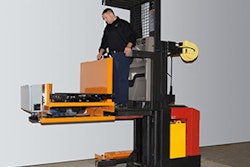Mountain View, Calif.—Nov. 15, 2013—SOASTA, a provider of cloud and mobile testing, announced how the botched rollout of Obamacare website exchanges and the in-fighting between lawmakers in Washington, D.C. are likely to impact the 2013 holiday shopping season. An online survey was conducted by Harris Interactive on behalf of SOASTA of 2,038 Americans 18 and older. The data was weighted to be representative of the entire country.
In the latest installment of its 2013 Holiday Retail Readiness Survey, SOASTA discovered that 44 percent of Americans say the problems in Washington, D.C. (the government shutdown, the concerns about the default, and the upcoming budget battles in January and February) affected their decision to shop online for the holidays this year.
Their reasons include:
- 24 percent said there are better deals online than in stores.
- 22 percent said there are more deals online than in stores.
- 19 percent said I don’t want to spend money on gas driving from store to store.
- 15 percent said there is just too much uncertainty at the start of 2014 to spend much money on the holidays.
- 4 percent said if money is tight at the start of 2014, it would be easier to return gifts for money.
An overwhelming percentage of Americans (77 percent) felt that retailers should take some sort of action with their websites and apps this holiday season after the problems with the online Obamacare health exchanges, including:
- 53 percent feel companies should test their websites for performance issues more often.
- 19 percent think companies should say when their site was last tested.
- 44 percent think companies should focus more on testing and less on marketing.
- 36 percent think companies should test their apps more.
- 16 percent think companies should say when their apps were last tested.
“The problems with the Obamacare exchange rollout shows how crucial testing is for website and app deployment,” said Tom Lounibos, SOASTA CEO. "Throughout our experience, we learned that if you don't get the user experience right the first time, consumers will go somewhere else. The problems with the Obamacare online exchanges made consumers more aware than ever before about how crucial it is to test websites—whether it’s for retail or for healthcare.”
“What was interesting about this data was how much of an impact what happens in Washington has on spending and shopping for the holidays,” said Regina A. Corso, senior vice president, Harris Poll and Public Relations. “When more than two in five Americans say that the mess in D.C. and the potential for another one in January/February impacts how they are going to shop, retailers need to take notice and adjust their plans accordingly.”
The survey results come as SOASTA prepares many online retailers for the busy holiday season by providing a mobile test automation solution that ensures websites and mobile apps work as planned, while catering to hundreds of thousands of concurrent users.
Survey Methodology
This survey was conducted online within the United States between October 28 and 30, 2013 among 2,038 adults (age 18 and over) by Harris Interactive on behalf of SOASTA via its Quick Query omnibus product. Figures for age, sex, race/ethnicity, education, region and household income were weighted where necessary to bring them into line with their actual proportions in the population. Propensity score weighting was used to adjust for respondents’ propensity to be online.
All sample surveys and polls, whether or not they use probability sampling, are subject to multiple sources of error, which are most often not possible to quantify or estimate, including sampling error, coverage error, error associated with nonresponse, error associated with question wording and response options, and post-survey weighting and adjustments. Therefore, Harris Interactive avoids the words “margin of error” as they are misleading. All that can be calculated are different possible sampling errors with different probabilities for pure, unweighted, random samples with 100 percent response rates. These are only theoretical because no published polls come close to this ideal.
Respondents for this survey were selected from among those who agreed to participate in Harris Interactive surveys. The data were weighted to reflect the composition of the adult population. Because the sample is based on those who agreed to participate in the Harris Interactive panel, no estimates of theoretical sampling error can be calculated.












